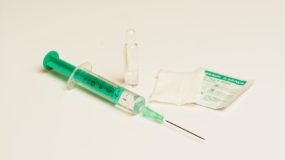To taste the freshly caught fish from the cauldron, appetizingly fragrant on the banks of the river, meet your beloved husband from a "quiet hunt", quickly prepare a catch and treat the household - these moments could be even more pleasant if it were not for cleaning the fish from slippery scales. This adds a "fly in the ointment" to enjoy river fish dishes.
We will not give up positions, and will try to optimize objective reality. After all, fish-based dishes are healthy and tasty.
The basic rule of processing fish: clean from tail to head, with small sharp movements. First we clean the sides, then the abdomen of the carcass.
Preparation for cleaning
- Board for cutting.
- Kitchen, big scissors.
- Paper towels.
- Sharp knife. If you are not a master, take a regular knife.
- Scraper for cleaning small scales. This device is purchased at points of sale.
- Grater is also useful.
The challenge is to remove trash from the fish. This is grass, grains of sand, tina and more, so we wash the catch in cold water. If the water is running - great! If you have to wash the fish in the basin, change the water several times.
The way to get rid of scales and offal depends on the type of fish. For some varieties, savvy when cleaning at home.
Quick and easy cleaning of the most popular river fish

River and sea perch
First, trim the fins with scissors, which can damage the skin of the hands. It is painful and unsafe.
Then dip the carcass in cold water, and clean it against the scales with a fork or knife. The grooves that raise the scales in some areas are obtained. Thus, they are easier to clean.
Catfish
The catfish has smooth skin, and there are no small bones in the carcass. Removing the mucus covering it is the main task in preparation. Coarse salt will come to the rescue.
- catfish 1 PC
- coarse salt 1 tsp
- Bring the catfish in salt.
- Leave for a moment.
- We wipe the carcass (wearing a rubber glove first) with a sponge or clean rags.
- With a knife (blunt side) we scrape the skin to a light shade.
- We wash off everything that has been scrubbed. Then repeat at least once.
- In the “summer fishing” salt can be replaced with ash.
Zander
Zander has a mucous surface, so we also use coarse salt.
- We get rid of mucus and mucus, wipe the carcass.
- Cut the fins with a knife, grabbing some meat.
- To remove the scales we use boiling water. We clean from tail to head, against the growth of scales. It cleans fine fine metal grater well. We attach the grater to the stick and, holding the handle, process the fish.
- Now remove the giblets. Cut the skin of the pikeperch between the gills and carry the knife down to the tail, while holding the carcass by the gills.
- We take out all the insides, not forgetting to remove the films. You can not remove the skin from zander.
Tench
Lin has small, dense scales and mucus. To begin with, it rinses off the mucus, then dip in boiling water and sharply shift it into cold water. We begin to clean the scales and entrails.
Crucian
Crucian is the purest fish. We wash it in water, clean the scales with a knife. Gutted.
Silver carp
The silver carp is easy to clean with a special device (buy in a store or process with a grater). Keep the fish in the water if you do not want to collect scales flying around the house.
Cleaned, washed with cold water. It's time to learn about some features when cleaning the insides.
Be sure to cut the gill plates from the head. From the semi-finished product (silver carp head) you can cook ear or fry.
Carp
Carp has large and dense scales, it is better to clean it in a basin with cold water, moving against the growth of scales. Places that are difficult to access can be doused with boiling water. Then the scales will soften and it will become easier to move away.
Video instruction
Useful Tips
- To process all types of fish, it is advisable to have a special cutting board. To prevent fish smell from absorbing into the canvas, wear a plastic bag or cover the paper.
- Processing should be done as soon as possible after capture (or acquisition). Remove fish offal on the same day.
- If the fish has dried, soak it for several minutes in cool water. Then proceed with the processing.
- Rinse the fish thoroughly after processing. This will allow you to notice the flaws of cleaning - a small scale that has not moved in places, a film inside the abdomen.
- When the fish is intended for smoking and drying, it is better to leave the scales.
- Does the fish smell like river mud? Soak after cleaning for an hour in salt water, the problem will disappear.
- You can use the freezer. Place the carcass for a day. Take out, wait for the moment when the scales are thawed, and inside the pulp is still frozen. Can be cleaned, the scales will go away perfectly.
So it's time to look for recipes for fish dishes in your notes. Now you can cope with any "river guest" caught in the net or on the hook, and then directly into the kitchen.










